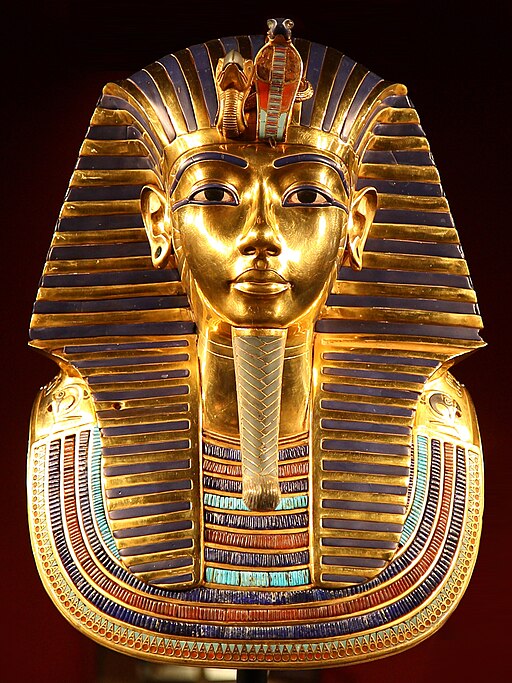
“The Poor Poet” by Carl Spitzweg depicts the popular cliché of the poet concentrating only on his art; his material wealth and appearances are not a priority.
The poet is shown in his shabby attic room on a simple mattress lying on the bare floor, wearing a worn-out and patched jacket and a sleeping cap.
An umbrella has been positioned to protect him from the leaky roof, and his books surround him. The poet is unperturbed by the impoverished room he is devoted to writing his poem.
The poet holds his writing quill in his mouth while he uses his fingers to count the meter of his poem. Like so many of Carl Spitzweg’s paintings, “The Poor Poet” combines a look into a real-life situation with a sense of humor.
When the picture was first exhibited in the Munich in 1839, it met with criticism because of its satirical depiction of the impoverished poet.
The image was interpreted as an attack on all impoverished artists, and his contemporaries’ questioned the meaning and purpose of Spitzweg’s painting.
As amusing as the depiction might appear at first glance, over time, the image has been interpreted as social criticism on the precarious situation of artists, conveying a sense of poverty and existential fears.
Since its first showing, Spitzweg’s style of genre painting has increased in popularity, and he became perhaps the most beloved painter of the Biedermeier period in the mid-19th.
In more recent times, numerous surveys in Germany have shown that Carl Spitzweg’s Poor Poet is his most popular and well-known painting. Museum collections include an oil study and three versions of this famous painting.
Carl Spitzweg
Carl Spitzweg (1808 – 1885) was a German romanticist painter of the Biedermeier era. Spitzweg was self-taught as an artist, starting by copying the works of Flemish masters.
He contributed his first work to satiric magazines. Upon receiving an inheritance in 1833, he was able to dedicate himself to painting.
Spitzweg visited the European art centers of Prague, Venice, Paris, London, and Belgium to study the works of various artists and to refine his technique and style.
His later paintings and drawings are often humorous genre works. Many of his paintings depict sharply characterized eccentrics.
Biedermeier Era
The Biedermeier period refers to an era in Central Europe between 1815 and 1848, during which the middle class grew in number, and arts appealed to ordinary sensibilities.
It began at the end of the Napoleonic Wars and ended with the onset of the European Revolutions of 1848.
The term is used to denote the artistic styles and a set of trends that flourished at that time and had strong roots in Vienna and subsequently influence styles and periods to come.
The Poor Poet
- Title: The Poor Poet
- Artist: Carl Spitzweg
- Year: 1839
- Material: oil on panel
- Dimensions: Height: 36.2 cm (14.2 ″); Width: 44.6 cm (17.5 ″)
- Museum: Neue Pinakothek
Carl Spitzweg
- Name: Carl Spitzweg
- Born: 1808, Unterpfaffenhofen, Kingdom of Bavaria
- Died: 1885 (aged 77), Munich, German Empire
- Nationality: German
- Notable works:
- The Poor Poet
Carl Spitzweg – Der arme Poet – the poor poet
Explore Germany’s Museums
Berlin Museums
- The Pergamon Museum
- Neues Museum
- Altes Museum
- Alte Nationalgalerie – National Gallery (Berlin)
- Bode Museum
- Gemäldegalerie, Berlin
- Spy Museum Berlin
- Jewish Museum, Berlin
- Deutsches Historisches Museum – German Historical Museum
- DDR Museum
- German Resistance Memorial Center
Munich Museums
- Alte Pinakothek
- Neue Pinakothek
- Lenbachhaus
- Deutsches Museum
- Kunsthalle Munich
Hamburg Museums
- Kunsthalle Hamburg
- Internationales Maritimes Museum Hamburg
- Miniatur Wunderland
Frankfurt Museums
- Städel Museum
German Proverbs and Quotes
- German Proverbs and Quotes
~~~
“A great poet is the most precious jewel of a nation.”
– Ludwig van Beethoven
~~~
Photo Credit: Carl Spitzweg [Public domain]
Popular this Week








 Sponsor your Favorite Page
Sponsor your Favorite Page SEARCH Search for: Search Follow UsJoin – The JOM Membership Program
Sponsor a Masterpiece with YOUR NAME CHOICE for $5
Share this:
- Tweet
